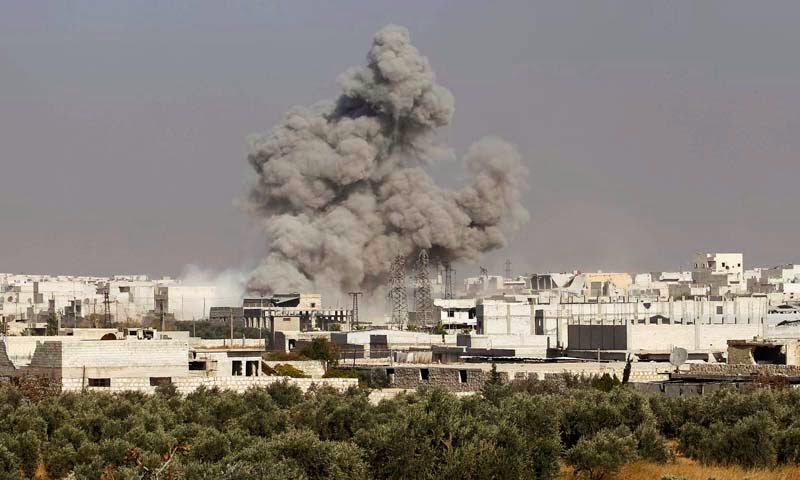Three children, a policeman and an army officer were among the dead from the blast in the northern city of Kirkuk, which also wounded 26 people, police and a doctor said.
Bodies, their clothes covered in blood, were placed in the back of a police pickup truck to be taken away, an AFP journalist reported.
Angry and grieving people railed against those who carried out the attack, shouting: "God take revenge on those who are evil!"
Worshipper Khalaf al-Obaidi said he narrowly avoided the blast because he had gone to greet one of his brothers inside the mosque instead of leaving.
"Then the bomb exploded," Obaidi said.
"You look and you see your friend or your brother or your relatives (on the ground). Even an infidel would not do this," he said. "God willing, there will be security and safety for this country and its poor people."
Eid al-Adha, which commemorates the willingness of Abraham (Ibrahim in Arabic) to sacrifice his son at God's command, is the biggest Muslim holiday of the year.
In Iraq, as around the Islamic world, people mark the holiday by slaughtering an animal, normally a sheep, and giving the meat to the poor.
As with various other religious occasions in Iraq, observance differs between Sunnis and Shiites.
Eid al-Adha begins for Sunnis on Tuesday this year, while most Shiites consider Wednesday to be the first of the holiday.
"We ask God to keep the ghost of sectarian strife... and civil war, on which those who sold their soul to the devil are insisting, away from our country," Prime Minister Nuri al-Maliki said in pre-recorded remarks broadcast on Tuesday.
"Our region today is in a storm of violence moved by sectarianism and terrorists, and our country is in the heart of this storm," he said.
On Monday, UN envoy Nickolay Mladenov had called for unity in Iraq on the occasion of the holiday.
?On this Eid and at this crucial time, I would like to plead for unity and understanding among all the Iraqis and their political, religious, and civil leaders," Mladenov said in a statement.
"It is only through working together that the people of Iraq can stand up to the violence that is tearing society apart."
Other attacks in Kirkuk, Nineveh and Baghdad provinces on Tuesday killed three people and wounded three more, officials said.
Almost nothing is safe from attack by militants in Iraq, and violence has reached a level not seen since 2008, when the country was just emerging from a brutal sectarian conflict.
Secure targets such as prisons have been struck in recent months, along with cafes, markets, mosques, football fields, weddings and funerals.
Attacks on both Sunni and Shiite gatherings have raised fears of a relapse into the intense sectarian bloodshed that killed tens of thousands of people in 2006-2007.
Analysts say the Shiite-led government's failure to address the grievances of Iraq's Sunni Arab minority -- which complains of being excluded from government jobs and senior posts and of abuses by security forces -- has driven the surge in unrest.
Violence worsened sharply after security forces stormed a Sunni anti-government protest camp in northern Iraq on April 23, sparking clashes in which dozens died.
And while the authorities have made some concessions aimed at placating anti-government protesters and Sunnis in general, such as freeing prisoners and raising the salaries of Sunni anti-Al-Qaeda fighters, underlying issues remain unaddressed.
The government has enacted new security measures, stepped up executions and carried out wide-ranging operations against militants for more than two months, but has so far failed to curb the violence.
The latest unrest takes the number of people killed so far this month to more than 310, and to over 5,000 since the beginning of the year, according to AFP figures based on security and medical sources.(Courtesy: AFP)














